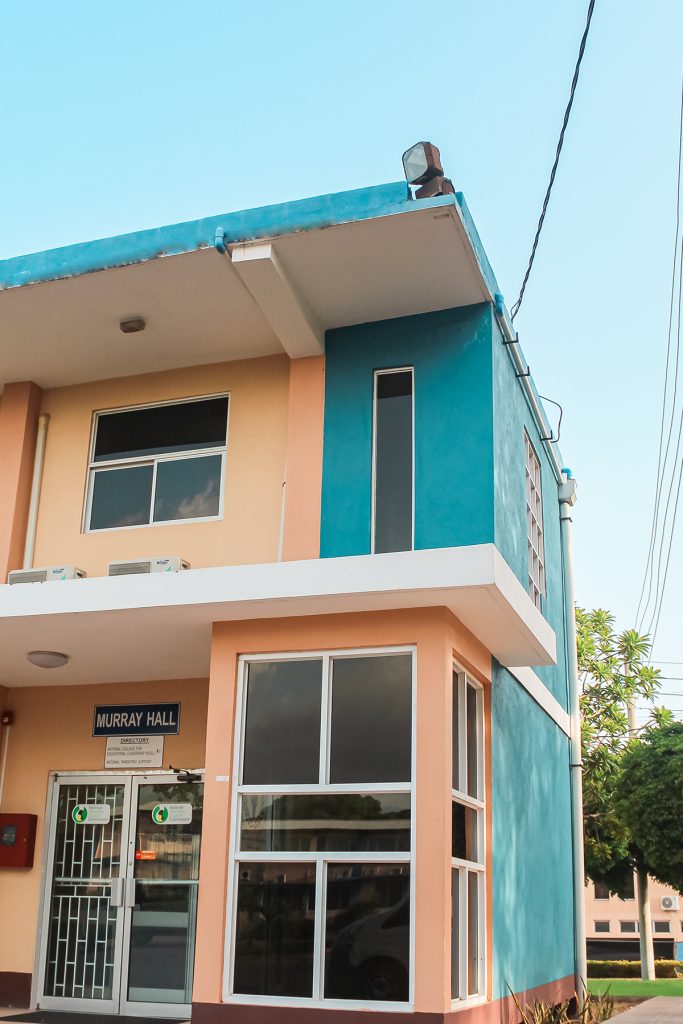Programme Description
The Child-Friendly School (CFS) Leadership programme is designed with two levels to introduce the concepts and principles that are central to Child-Friendly Schools within the Global context in Level I and is further explored in the Jamaican school context in Level II .
Programme Objectives
The Child-Friendly School (CFS) Leadership programme is designed to enable school leaders to:
- apply the concepts and principles that are the foundation of the CFS model;
- recognize CFS as a dynamic model that charts out a pathway to quality enhancement in education that is flexible enough to be applied to development as well as emergency situations;
- gain the necessary technical knowledge, programming skills, and aptitudes to support the planning and implementation of the CFS model for education, as well as its mainstreaming into the national education policies and plans; and
- become familiar with key reference documents and resources to support the application of the CFS model.
Admission Requirements
This programme is open to all Principals, Vice Principals, Guidance Counsellors, Deans of discipline, Education Officers and Senior teachers desirous of learning more about the Child-Friendly Schools initiative, a core component of UNICEF’s programmes in the field of education.
Programme Delivery
This programme is delivered asynchronously and includes scenario-based modules which introduce core concepts and their applications.
Programme Structure
This programme consists of two levels each addressing core concepts and principles of the Child-Friendly Schools initiative and practical implications.
| CFS Global | Overview |
| Introduction to Child-Friendly Schools | This module examines the theoretical principles that underpin child-friendly schools as well as the multidimensional approach to characterizes the CFS model. |
| Learning and Teaching I | This module explores the pedagogy of child-friendly schools (CFS) and the various approaches that may be adopted to maximize student engagement and participation. |
| Learning Environment I | This module introduces the concept of risk index and explains its importance in identifying risks to students’ safety, health and wellbeing. |
| School Leadership in Child-Friendly Schools | This module focuses on the essential role played by school leaders in advancing the principles of child-friendly schools. |
| School Community Links I | This module explores various components of the school community while highlighting their roles in supporting students’ rights to education. |
| Application of CFS to Guide School Design and Construction | This module provides established norms and standards for the design and construction of child-friendly schools. |
| CFS Jamaica | Overview |
| Responding to Emergency and Conflict Situations | This module explores various initiatives undertaken by countries in the Caribbean to ensure that educational institutions provide a sense of safety and security for all stakeholders. |
| Learning and Teaching II | This module examines child-centered instructional strategies aimed at developing active learners who contribute to the learning and teaching process. |
| The Learning Environment II: Part One | This is the first of a two-part module that focuses on the learning environment in a child-friendly school. This section focuses on health issues including the psychosocial and emotional needs of both students and staff. |
| The Learning Environment II: Part Two | This is the second of a two-part module that focuses on the learning environment in a child-friendly school. This section emphasizes strategies for addressing students’ behaviours with strong focus on positive behaviour interventions. |
| Inclusivity and Gender Sensitivity | This module examines inclusivity in education with an emphasis on integrating inclusion principles in learning environment and the curriculum. |
| School-Community Links | This module is designed to encourage strategic partnerships for the development of child-friendly schools. |
| CFS Design and Construction | This module examines child-friendly school principles that should be considered in the design and construction of educational institutions. |
| Education Policy and Scaling Up | This module focuses on the role of the Ministry of Education, Youth and Information (MoEYI) in the mainstreaming child-friendly schools across Jamaica |

Programme Officer
Camielle Michael-Patterson has been involved in the transformation of education in Jamaica for over 17 years. She is a graduate of the Virginia Commonwealth University and the Mount Saint Vincent University with a Master’s Degree in Educational Leadership and a Bachelor’s Degree in Elementary Education.





